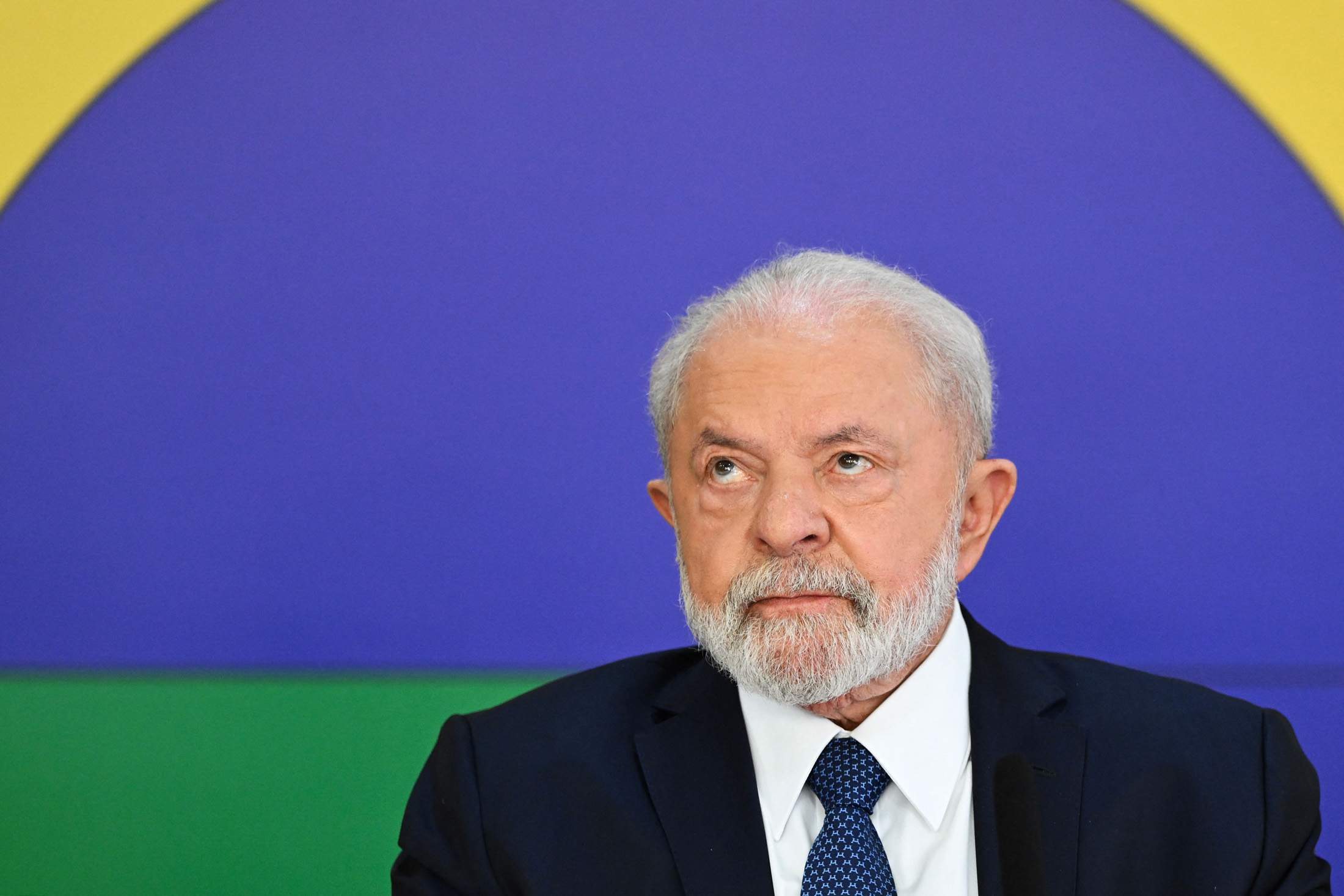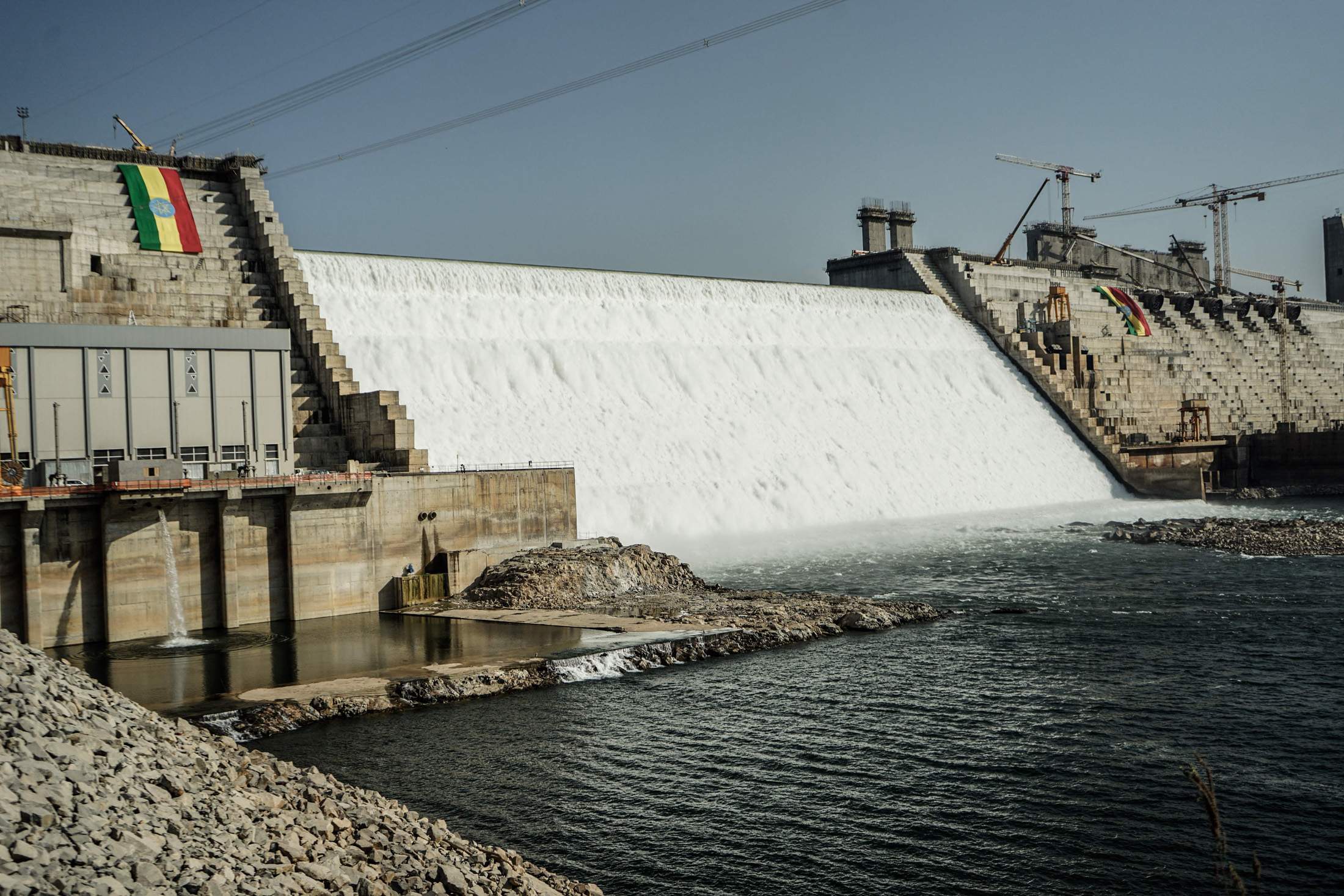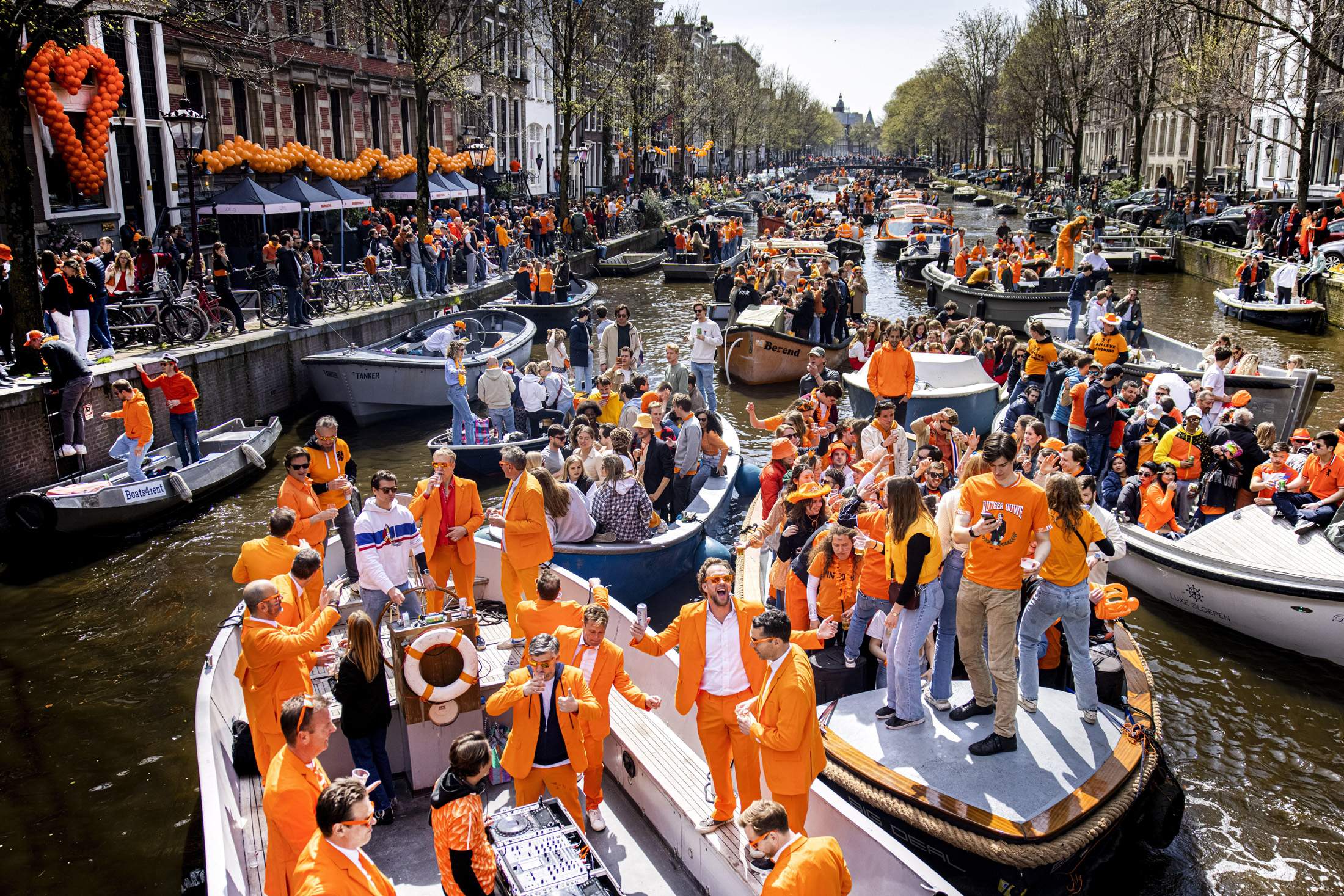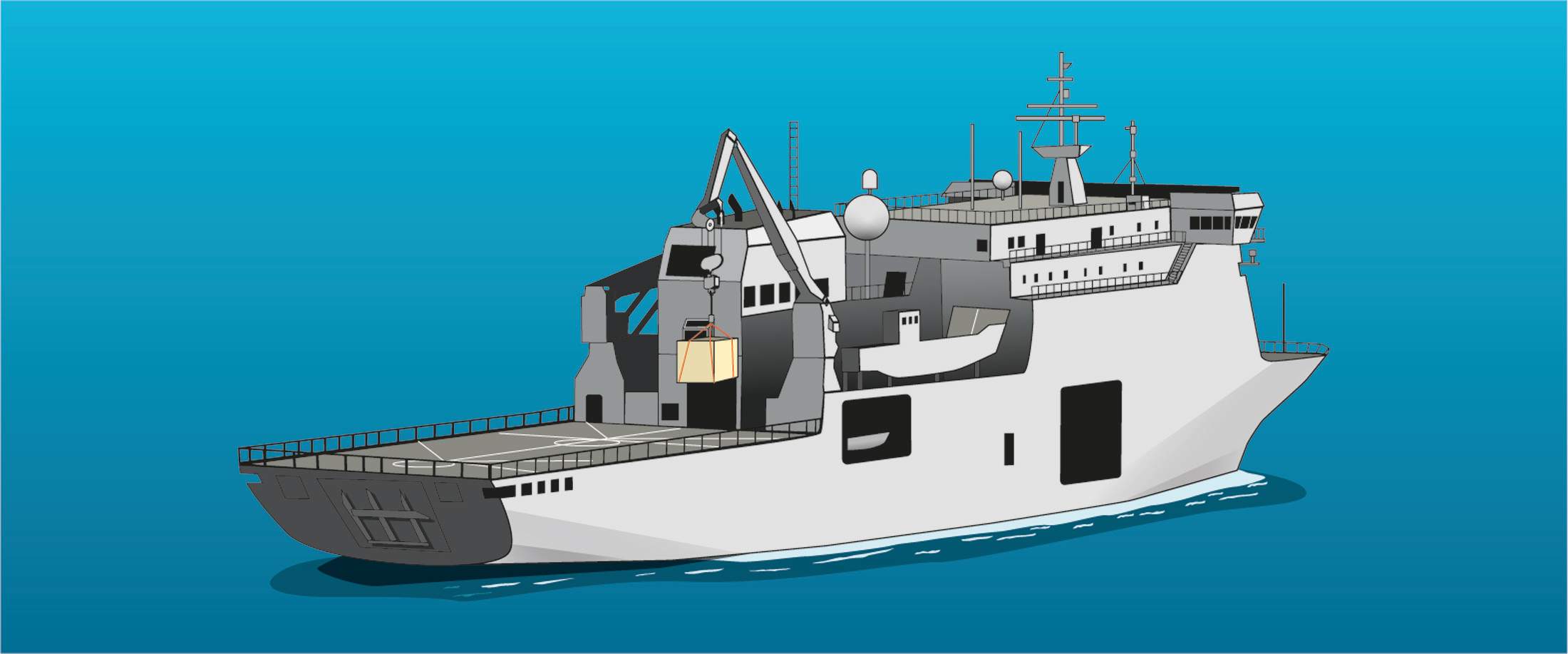October / Global
The Agenda: Affairs
What we have learned a year on from the 7 October attacks, Brazil’s spat with Nicaragua and Ireland’s naval know-how.
THE FOREIGN DESK
andrew mueller on...
Bibi’s lost opportunity
On 18 October last year, 11 days after Hamas killed more than 1,200 people in Israel, Joe Biden spoke in Tel Aviv and urged Israel to learn from US mistakes after 11 September. “Shock, pain, rage,” he said. “An all-consuming rage. I understand and many Americans understand. But I caution this: while you feel that rage, don’t be consumed by it. After 9/11, we were enraged in the United States. And while we sought justice and got justice, we also made mistakes.”
The first anniversary of 7 October will pass while this issue of monocle is on newsstands. In that time, Israel – specifically Benjamin Netanyahu – has paid little heed to Biden’s counsel. But what if he had? In the immediate aftermath of the massacres, Israel had the world’s sympathy. It also had an opportunity. A full-scale assault on Gaza was perhaps the likeliest option but it wasn’t the only one. Israel would have been entitled to reinforce its border with Gaza. It might reasonably have declared it would hunt down those responsible and deliver them to one kind of judgement or another. And there Israel could have paused.
The media would have had nothing to report but the funerals of Israel’s dead, the sorrow of their families and the plight of the hostages taken by Hamas. It would have bought time for the hostages and placed upon Hamas all the responsibility for their wellbeing. The group might have indulged in the kind of gloating that would have underscored their malevolence. Israel could have asked Hamas’s allies which side they wanted to be seen to be on. The answer might well have strengthened Israel’s recent diplomatic meshing with Arab nations, and further isolated Hamas as insane and intransigent.
Netanyahu has repeatedly floated the line that Israel is fighting on behalf of the democratic ideal against a modern fascism – and on four fronts, if one also counts Hezbollah in Lebanon, the Houthis of Yemen and their patron Iran. He has also complained that Israel, when it defends itself, is held to different standards than other countries. But democracies should be held to different standards, not least by themselves. —
Andrew Mueller hosts ‘The Foreign Desk’ on Monocle Radio.
diplomatic spat
The party’s over
Who vs who:
Brazil vs Nicaragua
What it’s about:
The failure of Brazil’s ambassador to Nicaragua to attend a party. Brasília’s man in Managua, Breno de Souza da Costa, had been invited to a wingding to celebrate the 45th anniversary of Nicaragua’s Sandinista revolution, which toppled ghastly dictator Anastasio Somoza and brought to power Daniel Ortega, currently in his second lengthy stint as Nicaragua’s president and not improving with age. Ambassador da Costa was instructed not to attend by Brazil’s president, Luiz Inácio Lula da Silva (pictured). Ortega then instructed da Costa to pack his bags and, by way of return, Brazil has slung out Nicaragua’s ambassador, Fulvia Patricia Castro Matu.

What it’s really about:
Lula and Ortega are almost exact contemporaries, born two weeks apart in 1945, and would once have been regarded as natural allies: rumbustious leftists who had both taken bold stands against miserable military juntas. Lula still gets on pretty well with other comrades of their generation, especially former Bolivian president Evo Morales and outgoing Mexican president Andrés Manuel López Obrador. But while Lula has – mostly – grown more pragmatic with age, Ortega has made the tediously familiar journey from red-bereted rebel to authoritarian crank. Lula has been especially vexed by Ortega’s harassment of Catholic clergy.
Likely resolution:
It might blow over. There are suggestions that Lula took a free swing at Ortega to deflect criticism that he’d been soft on Venezuelan president Nicolas Maduro – though Lula didn’t acknowledge Maduro’s claims to have won Venezuela’s recent election, he didn’t go as far as some Latin American nations and formally recognise the country’s opposition. Ridiculous and sinister as Ortega is, he is also useful to other Latin American leaders looking to define what they are not.
WATER –––– ETHIOPIA
Dry outlook
November heralds the onset of the Nile Basin’s dry season but Egyptians and Sudanese are sweating about the months ahead. Operators at the recently completed Grand Ethiopian Renaissance Dam filled its reservoir for the fifth time over the summer, prompting fears that hundreds of millions of people downstream will soon find themselves short of water. Decade-long talks between Cairo and Addis Ababa to negotiate a binding agreement on dam operations broke down in March and show no signs of resuming, while Khartoum is too mired in civil war to participate meaningfully.

Africa’s largest hydroelectric dam is a source of national pride for Ethiopia, itself emerging from internal conflict and looking to flex its muscles as a regional power player. But Addis’s insistence on acting unilaterally while its downstream neighbours are vulnerable has soured relations. Ethiopia made the surprise announcement to construct the dam in April 2011. Cairo’s latter-day protestations that the project is “illegal” haven’t convinced it to change course.
“Ethiopia has been opaque, Egypt has been dogmatic and Sudan has been caught in the middle,” says Middle East analyst Natasha Hall of the Center for Strategic and International Studies. “Water causes a great deal of anxiety and panic. If there isn’t some kind of trusting relationship between the riparian neighbours, it could simply amount to conflict.” And conflict is something the war-ravaged and drought-ridden region could ill afford. —
IMMIGRATION –––– THE NETHERLANDS
Too much Dutch?
If you thought the Oranje Legioen at recent international sports events looked overwhelming, brace yourself. In August, the Netherlands welcomed its 18 millionth inhabitant, an event that was represented live on its statistics bureau’s website by a ticking over digital clock. While previous population milestones have been greeted with national jubilation (the song “15 Miljoen Mensen” by Fluitsma & Van Tijn went to number one in the Dutch charts in 1996), the latest met with a more negative response. In fact, Geert Wilders – leader of the far-right Freedom Party, which won the most votes in last year’s general election – said that “the Netherlands is full”.

Already Europe’s most densely populated country (excluding Monaco, Vatican City and Malta), the Netherlands is more like a giant city made up of uninterrupted urban sprawl. Its growing population makes it an outlier on the continent, where many nations are struggling with the consequences of depopulation. Its economic success – it is now the EU’s fifth-largest economy – marks it out as unusual too. Immigration has fuelled recent growth but it has also exacerbated a severe housing crisis. More people may mean more workers but it also means more consumers, creating a complex and paradoxical cycle of growth and labour shortages.
Projections suggest the Dutch population could hit 23 million by 2050 – equivalent to squeezing another 19 million people into the UK. Solutions for dealing with this include building vertically and reclaiming more land from the sea, fixes that have worked in other densely populated places, such as Singapore. At the density of the Asian city state, the Dutch could house some 273 million people. Imagine that at a football match.
IN THE BASKET
Sea Eire

In the basket: One multirole naval vessel
Who’s buying: Republic of Ireland
Who’s selling: tbc
Price: €300 million
Delivery date: tbc
The confirmation that Ireland’s modest Naval Service will purchase a multirole vessel is a startling statement of intent by the country’s department of defence. It’s not just that such a ship, able to launch helicopters and deploy troops by sea and air, would be Ireland’s biggest vessel – it might effectively be Ireland’s only vessel. Lately Dublin’s meagre fleet has been substantially marooned by technical issues and personnel shortages. Of its four Samuel Beckett-class patrol ships, only one of them is on duty most of the time; two second-hand patrol ships bought from New Zealand are not yet operational. It would also represent an all-too-rare suggestion of seriousness from Ireland where maritime security is concerned. The country, responsible for 16 percent of the EU’s territorial waters, refuses to join Nato and spends barely 0.2 per cent of its gdp on defence.
CALENDAR –––– GLOBAL
Diplomatic bag
As memories of the northern hemisphere summer begin to recede from diplomats’ minds, here are a few things that will sharpen them again ahead of a busy end to the year.
1 October
Secretary-General Rutte
Brussels, Belgium
Mark Rutte assumes the Nato hotseat at a critical time for the world’s largest military alliance. With competing blocs forming elsewhere and the potential November election of Donald Trump – who has previously threatened to withdraw the US from the alliance – Rutte will have to deploy all of the political nous that saw him become the Netherlands’ longest-serving prime minister.
6—11 October
44th Asean Summit
Vientiane, Laos
The Association of Southeast Asian Nations, a union of 10 neighbouring states, is becoming increasingly significant as both a collection of rising economic powers and a bulwark against Chinese meddling in the Indo‑Pacific. This year’s summit, to be held in the capital city of one of Asean’s poorest nations, will focus on China as well as Myanmar, a recalcitrant member state currently suffering from a number of humanitarian and political crises.
22—24 October
16th Brics Summit
Kazan, Russia
Over the past year, much has been made by western commentators of the Brics’ supposed malevolent, or at least disruptive, geopolitical intentions. Despite the controversial setting of Russia for this year’s summit, the organisation will be welcoming four new member states in the shape of Egypt, Ethiopia, Iran and the uae. This will swell the ranks of the Brics to nine (Brazil, Russia, India, China and South Africa are already members); meanwhile, up to 17 applicants (including Belarus, Pakistan and Thailand) remain on the waiting list.


